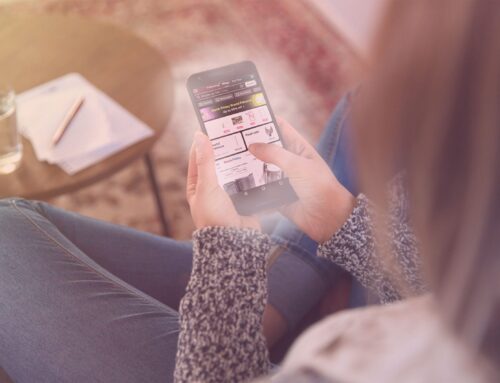
Although half of the world’s population menstruates, periods are still seen as taboo. In many states in the US, period products are taxed and difficult to obtain, despite being a necessity. Nadya Okamoto is a 21-year-old Harvard student, currently on a leave of absence, from Portland, Oregon, who works to address these issues. She is the Founder and Executive Director of PERIOD (period.org), an organization she founded at the age of 16. PERIOD is now the largest youth-run NGO in women’s health, and one of the fastest-growing ones in the United States. Since 2014 they have addressed over 500,000 periods and registered over 300 campus chapters.
Nadya is also an activist, who ran for office in 2017 in Cambridge, MA. While she did not win, her campaign team made historic waves in mobilizing young people on the ground and at the polls. Nadya recently published her debut book, Period Power: A Manifesto for the Menstrual Movement, which helps explain what menstruation is and helps end the silence on periods. Nadya is the Chief Brand Officer of JUV Consulting, a Generation Z marketing agency based in NYC. Most recently, she was named to InStyle Magazine’s “The Badass 50: Meet the Women Who Are Changing the World” list, along with Michelle Obama, Ariana Grande, and Dr. Christine Blasey Ford.

Keke Magazine: Tell us about your non-profit PERIOD. What is your mission?
Nadya Okamoto: PERIOD strives to end period poverty and period stigma through service, education, and advocacy. We do this through the global distribution of period products to people in need. We’re trying to change the way people think, talk, and learn about periods through education and digital content, and we’re now mobilizing around period policy from the local to the federal level, advocating for equitable access to menstrual hygiene.
K: Why and how did you start PERIOD?
N: I founded PERIOD when I was 16 years old, as a junior in high school, after my family experienced living without a home of our own for several months. During this time, on my commute to school on the public bus, I had many conversations with homeless women in much worse living situations than I was in. I was inspired to learn more about menstrual inequity and period poverty after collecting an anthology of stories of their using toilet paper, socks, brown paper grocery bags, cardboard, and more, to take care of something so natural. Via Google searches, I learned about the barrier that menstruation has for girls in school around the globe, about the effects on disadvantaged menstruators here in the US, and the systemic barriers to proper menstrual health management.
It’s 2019, and yet, 34 US states still have a sales tax on period products because they are considered luxury items (unlike Rogaine and Viagra). Period-related pain is a leading cause of absenteeism amongst girls in school, and periods are the number one reason why girls miss school in developing countries. Over half of our global population menstruates for an average of 40 years of their life on a monthly basis, and has been doing so since the beginning of humankind. It’s about time we take action.
K: Can you talk about what period poverty is and what actions we can take to fight against it?
N: We have to address period poverty and ensure equitable access to menstrual hygiene products on our way to achieving gender equality. The United Nations and the World Health Organization define gender equality in terms of education, healthcare, economic mobility and representation in politics and decision-making. A lack of access to period products is a huge barrier for success in education, health care and economic mobility.
This is not just about making yourself and the people immediately around you more comfortable talking about periods. It is about breaking down this cultural stigma so that we, as a global society, can talk about solutions to issues of period poverty. It is absolutely necessary to address this in our overall fight towards gender equality.
Lack of access to menstrual hygiene products is obviously an issue from a physical health point of view, but it is also extremely difficult from a psychological point of view. Girls’ self esteem drops dramatically when they hit puberty. As we work towards a more inclusive and equitable society, we have to address access to menstrual hygiene management. It impacts every aspect of a menstruator’s life.
In order for us to accomplish menstrual equity, we need to make sure that menstruators have the resources they need to feel clean, confident, and capable one hundred percent of the time.

K: Why do you think periods are so stigmatized in society?
N: Periods are widely considered a women’s issue. They are something that people should not talk about publicly, and throughout history, have been associated with a sense of shame and silence. We whisper the word “period” and hide tampons in our sleeves, but menstruation is a normal and natural biological function and should be treated as such. This is a human issue. It isn’t weird or scary, and it isn’t something we should be ashamed of in any way.
K: Many legislators who create laws that perpetuate period poverty, such as period taxes, are men. How can we help men become more aware and empathetic to periods?
N: We need to keep raising awareness about the realness and urgency of period poverty. Period poverty hinders our achieving full equality and equity, and menstruators having equal opportunities.
K: What are some projects you have planned for the future? How can people get involved with PERIOD?
N: The easiest way to join the menstrual movement is by joining the conversation. Everyone can make a difference simply by talking about periods! If you are looking for more ways to get involved, check out our website here.

Follow Nadya On:
Read the full interview in Issue 2: Innovation here.
Buy a print copy of Issue 2: Innovation here.



